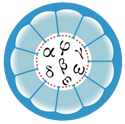Language training for refugees and migrants
Language training for refugees and migrants: Informal Language teaching methodologies
Next course: 27-31 August 2021, Santorini island, Greece
Working Language: English and Greek
SEMINAR PROGRAMME
Day 1 (Friday)
- Presentation of the participants and their organizations
- Presentation of the seminar’s programme and the trainers (educational contract)
- Locating the characteristics, the needs and the expectations of our learners
- Formal-informal-non formal methods and contexts
Day 2 (Saturday)
- The Language café methodology
- Participants practice their knowledge and skills in the Language café methodology
Day 3 (Sunday)
- The Language Exchange methodology
- Participants practice their knowledge and skills in the Language Exchange methodology
Day 4 (Monday)
- The Montessori methodology for adults
- Participants practice their knowledge and skills in the Montessori methodology for adults
Day 5 (Tuesday)
- Coping with practical problems in informal language teaching
- Reports on the visit and the course
- Evaluation of the seminar – farewell activities - Creating a communication network
Fees
Tuition fee: 70 €/ day/ person, which includes tuition and training materials.
Organizational costs: 100 €/ person, which includes administration costs, organizational costs and VAT.
Special discounts for non Erasmus Plus grant holders.
Learning Outcomes
At the end of the seminar, participants are expected to have acquired the skills that will enable them to:
- develop a repertoire of teaching skills and informal techniques and become able to make judgments as to when and how to use them,
- develop the ability to make choices with regard to informal teaching techniques and learning materials and to adapt or supplement them to cater for the specific needs of groups and individual adult learners
- learn to recognize learners as individuals with their own learning styles, motivation and aims and act appropriately in their informal language teaching
Methodology
The course is based on the principles of participatory adult education, by embodying participants' experiences and fostering the exchange of their ideas, proposals and materials. Its focus is not merely on the didactic aspect of teaching but also on the participants' social and cultural knowledge gained through education and teaching to different target groups throughout Europe. During the course, the following techniques will be implemented: working in subgroups and pairs, role play, lectures, guided conversation, brainstorming, language and educational games and experiential activities.
Participants will also be given hand-outs, original materials, lists of intercultural activities and websites for teaching tools.
Follow-up
Upon completion of the course, participants will be encouraged to form a network which will function as a meeting point. Within this network, they will be able to exchange didactic materials and proposals as well as useful ideas for promoting informal language learning in different European countries.


